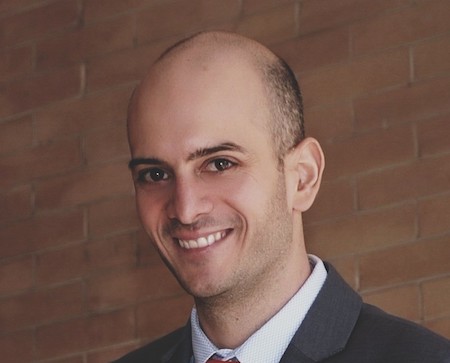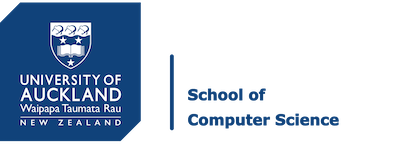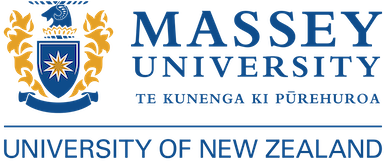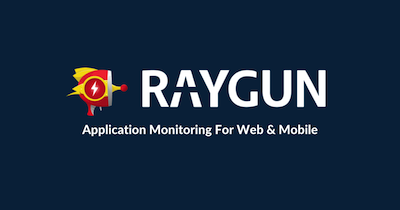Program and Registration
The registration is opened to everyone.
Registration is now open!:
REGISTER
Price:
NZD$ 150.00
NZD$ 60.00 (student fee)
Registration includes reception (drinks and canapes) and lunch on May 22 and social event on May 23 (Restaurant Bivacco, 115 Customs Street West, Auckland CBD).
Registration closes on May 14 2023.
If you need a formal invitation letter (for example, for visa purposes) please email Valerio Terragni at: v.terragni@auckland.ac.nz
Program
DAY 1 (May 22) Talks and Keynotes
| Time | Event | Location |
|---|---|---|
| 9:00 - 9:30 | Registration | Room: Conference Centre / 423-340 Conference Centre Building (City Campus), University of Auckland 22 Symonds Street, Auckland CBD, Auckland 1010, NZ |
| 9:30-09:35 | Opening | |
| 9:35-10:35 | Keynote 1: Prof. Mauro Pezzè, Future Challenges in Software Testing | |
| 10:35-11:00 | morning tea | |
| 11:00-11:30 | Presentation | |
| 11:30-12:00 | Presentation | |
| 12:00-12:30 | Presentation | |
| 12:30-13:00 | Presentation | |
| 13:00-14:30 | Lunch | |
| 14:30-15:30 | Keynote 2: Dr. Panos Patros, The Raygun Approach to AI-Enabled Software Performance Engineering | |
| 15:30-16:45 | Panel Discussion | |
| 17:00-18:00 | Cocktail reception | Engineering Foyer, Level 4 Faculty of Engineering (City Campus), University of Auckland 20 Symonds Street, Auckland CBD, Auckland 1010, NZ |
DAY 2 (May 23) Student Symposium and Social Events
Social Events
City tour: from 10 AM
Lunch: 1PM - 4PM (Lunch @ Bivacco (115 Customs Street West, Auckland CBD))
| Time | Event | Location |
|---|---|---|
| 10:00-10:05 | Welcoming and Opening - Amjed Tahir | Room: University of Auckland, Building 405 (5 Grafton Road), 6th floor, Room 662, Auckland 1010, NZ |
| 10:05-10:30 | Keynote by Matthias Galster | |
| 10:30-10:50 | Quantifying Veracity Requirements Technical Debt in the Context of New Zealand's Organic Products Supply Chain - Judith Perera | |
| 10:50-11:10 | Understanding User Feedback in Software Forums for Requirements Elicitation - Hechen Wang | |
| 11:10-11:20 | Break | |
| 11:20-11:40 | Identifying and Mitigating Flaky Tests in JavaScript - Negar Hashemi | |
| 11:40-12:00 | Breaking Changes and its Effect on Client Projects - Dhanushka Jayasuriya | |
| 12:00-12:30 | Open Discussion and Q&A with the Panel | |
| 13:00-16:00 | Lunch | Bivacco (115 Customs Street West, Auckland CBD) |
Keynotes

Prof. Mauro Pezzè, USI Università della Svizzera Italiana and Constructor institute in Schaffhausen (Switzerland)
Title: Future Challenges in Software Testing
Abstract: Software is dramatically changing. Current and future software systems rapidly evolve, adapt to new and emerging environment conditions, and behave autonomously. The fast growth of systems with AI and machine learning engines will spread across many domains, and be a common feature of most software systems. Classic testing cannot adequately address evolving, adapting, autonomous behavior of contemporary and future software systems. At the same time to recent extraordinary progresses in machine learning and natural language processing open enormous opportunities to define new testing approaches.
In this talk, I will discuss the challenges of testing future software systems, the opportunities of machine learning and natural language processing to define new testing approaches, and the role of testing in self-healing systems. I will discuss advantages, limitations, and benefits of combining classic with field testing in a seamlessly integrated context, I will present the state of the art in exploiting machine learning and natural language processing to test future software systems, and I will discuss the interplay of fully automated testing and self-healing approaches.
Bio: Mauro Pezzè is Professor of Software Engineering at USI Università della Svizzera Italiana and Constructor institute in Schaffhausen (Switzerland). He leads the joint USI-Constructor STAR, Software Testing and Analysis Research, laboratory. Dr. Pezzè serves as editor in chief of ACM Transactions on Software Engineering and Methodologies. He served as associate editor of IEEE Transactions on Software Engineering, ACM Transactions on Software Engineering and Methodologies, and the journal on Software Testing, Verification and Reliability (STVR). He served as general and program chair of the ACM International Symposium on Software Testing and Analysis (ISSTA), and program co-chair of the International Conference on Software Engineering (ICSE). He is the co-author of over 180 papers published in international journals and in the proceedings of international conferences, and of the influential book, Software Testing and Analysis, Process, Principles and Techniques.

Panos Patros, PhD, Principal Engineer, Raygun Performance Monitoring
Title: The Raygun Approach to AI-Enabled Software Performance Engineering
Abstract: What does the future hold for AI-assisted and AI-enabled software performance engineering? Find out from Raygun, an NZ-grown company competing globally in the software performance space! This talk will emphasize the importance of performance for the end-user experience and showcase tools like Crash Reporting, Real User Monitoring, and Application Performance Monitoring. Hear how Raygun has innovated to serve huge clients on a global scale, including handling the performance monitoring of HBO’s Game of Thrones finale. Inspired by recent innovations in AI language models, learn about Raygun’s emerging approach to self-evolving software engineering and how our new API can be integrated with other tools, including AI. This discussion aims to spark constructive debate on what should be included or expanded upon in computer science and software engineering degrees, while seeding R&D directions and collaborations in the performance engineering space.
Bio: Dr. Panos Patros, CPEng is an expert in performance engineering and a software engineer with two decades of experience in both academia and industry. He is currently a Principal Engineer with Raygun Performance Monitoring in New Zealand and an Adjunct Professor in Computer Science with the University of New Brunswick in Canada. At Raygun, Panos leads the providers/profilers/tracers team and prototypes novel performance tools and methods to expand the company’s range. Dr. Patros earned his PhD in Computer Science from the University of New Brunswick, where he conducted research and development on performance engineering in language runtimes, platform clouds and embedded systems. His work has been widely published in peer-reviewed academic papers, with over 50 publications to his name. Panos has also authored three software patents with IBM. His contributions to the field have been recognized with numerous awards and honors, including IBM Project of the Year in 2016.
SI^NZ workshop 2023 Student Symposium
Call for Submissions
The Student Symposium aims to provide a helpful and stimulating forum for current postgraduate students (PhD and Masters) to present and discuss their research proposals and early research results. Experienced members of the SI^NZ community will serve as advisers to provide constructive feedback on the research proposals. Participants must be current postgraduate research students, preferably those who have identified their research topic and progressed on initial results. However, other students are also welcome to attend. Students must submit a two-page, single-authored abstract (see the submission format below). The submission should include the following elements: the research problem and motivation, background and related work, approach and novelty, results (if any), and contributions. The review process is not anonymous - there is no need to anonymise the submission. A panel of experts will review the submissions and select the students to participate in the Students’ Symposium. Students of accepted submissions will: 1) present their research to the panel (and other students) during the symposium and 2) participate in the poster session (posters will be displayed for the duration of the two-day workshop). The abstract will not be published.
Important dates
Submission: April 15th, 2023
Notifications: April 29th, 2023
Submission
Please submit your papers via EasyChair using the following link: https://easychair.org/my/conference?conf=sinzworkshop2023
All submissions should use the official ACM Primary Article Template https://www.acm.org/publications/proceedings-template.
Organizers

Valerio Terragni
University of Auckland, Auckland, New Zealand
Kelly Blincoe
University of Auckland, Auckland, New Zealand

Fabian Gilson
University of Canterbury, Christchurch, New Zealand

Amjed Tahir
Massey University, Palmerston North, New Zealand
Jens Dietrich
Victoria University of Wellington, Wellington, New Zealand






